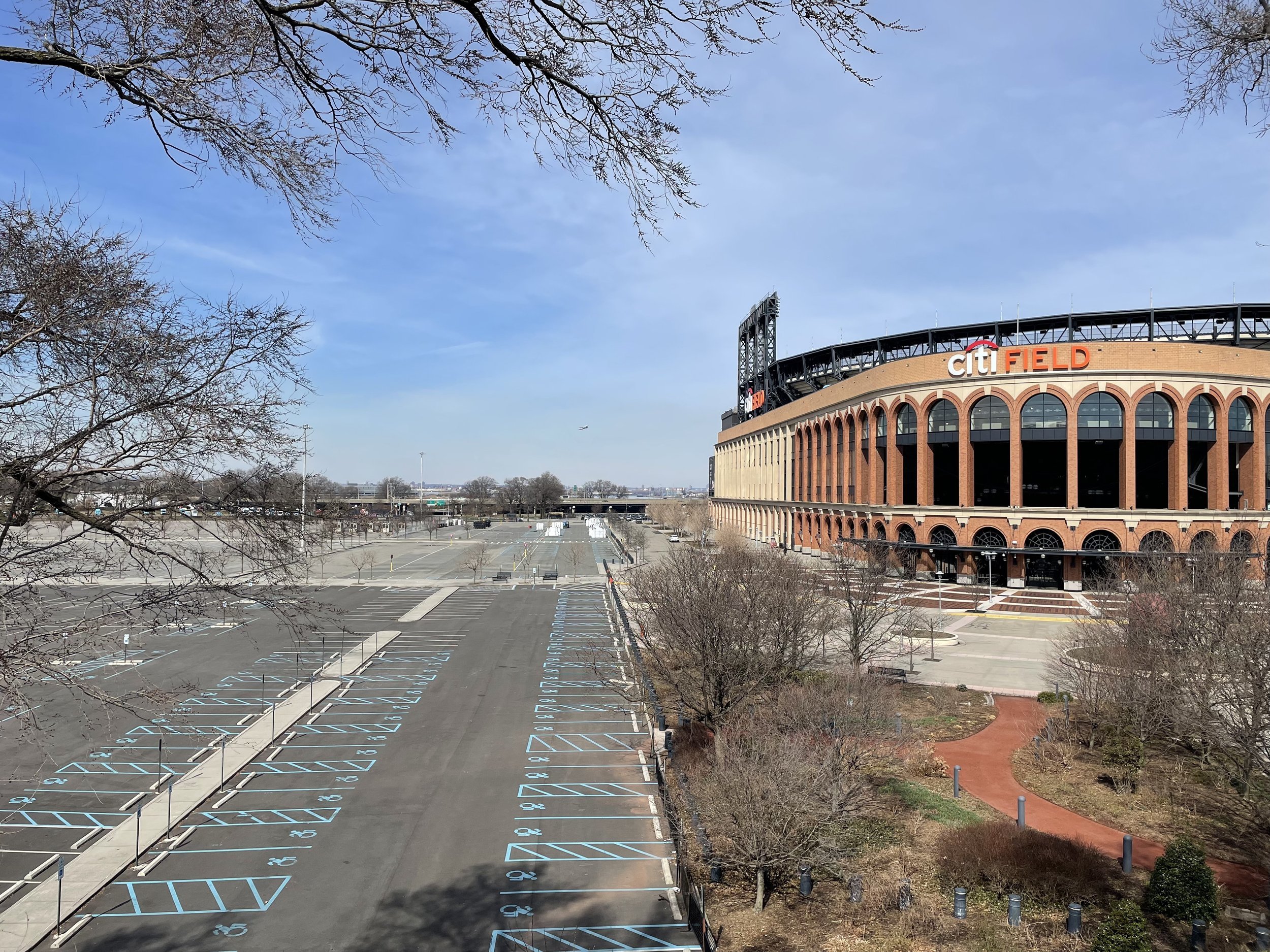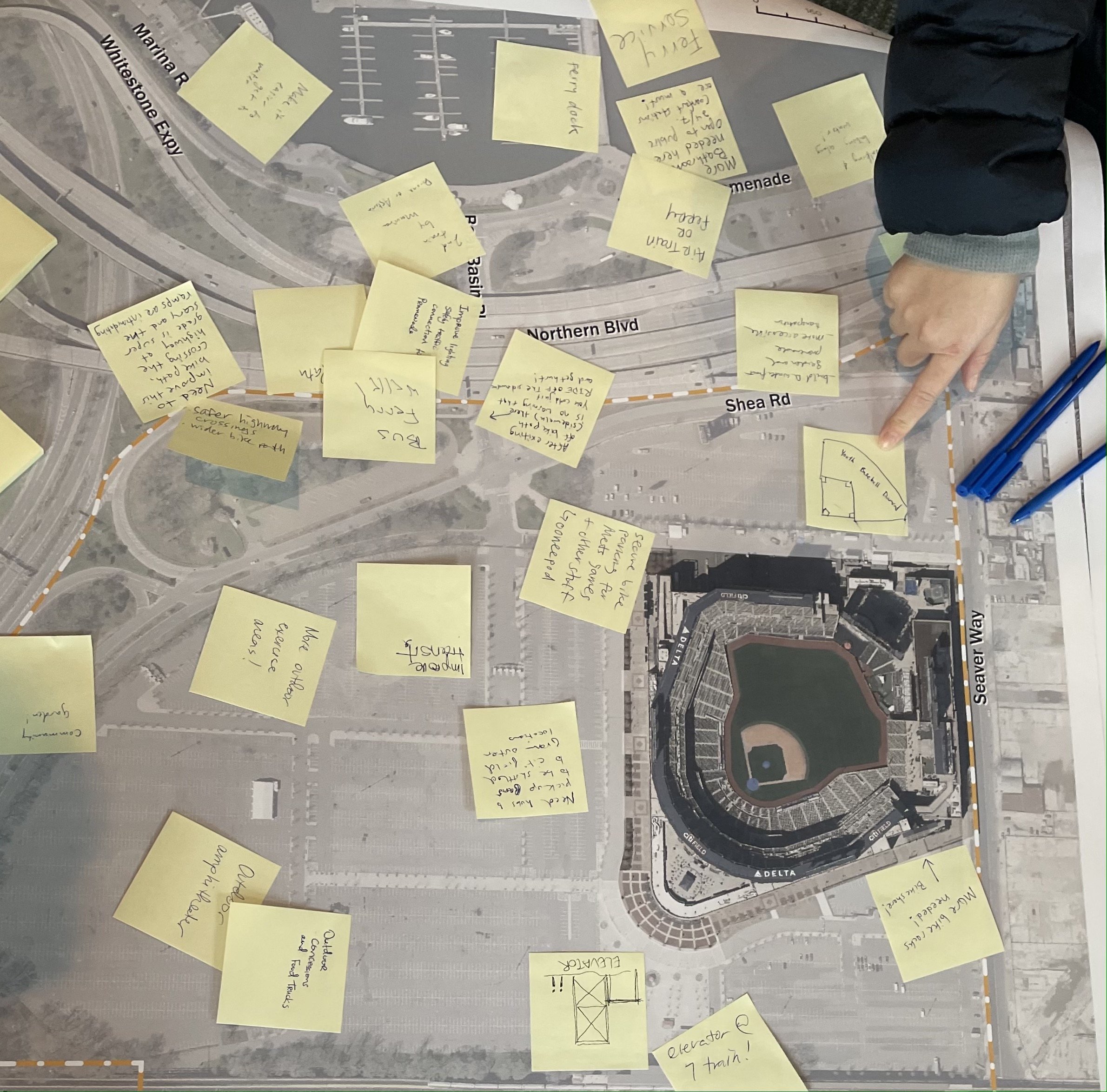Cohen’s Citi Field casino rejected by local pol
/Queens State Senator Jessica Ramos came out in opposition to Steve Cohen’s proposal to bring a casino to Citi Field’s parking lot, leaving the billionaire owner of the New York Mets with few viable options to move his project forward. AP file photos by Hans Pennink/Charlie Riedel
By Jacob Kaye
After nearly a year of playing her cards close to her chest, Queens State Senator Jessica Ramos dropped her poker face Tuesday and announced that she does not support New York Mets owner Steve Cohen’s bid to bring a casino to Citi Field, a move that may spell the end to the billionaire hedge fund manager’s years-long campaign to bring a gambling facility to Western Queens.
Just days before the end of the state’s legislative session, Ramos said that she will not introduce a bill to help Cohen skirt a land use issue that, at the moment, prevents him from building an $8 billion casino and entertainment complex known as Metropolitan Park on the 50-acre plot of city-owned land currently used as Citi Field’s parking lot.
Without Ramos’ support, Cohen’s path to receive permission to build the casino on the lot has become extremely narrowed, leaving him with few viable options to move his project forward.
Ramos’ announcement appears to put a near definitive end to Cohen’s effort to convince the lawmaker that the casino and entertainment complex would provide a major economic boost to her district and serve a generally positive role in a part of Queens slated for major growth in the coming decade. That effort, which has been fueled by lobbyists and consultants, included feedback sessions hosted by Metropolitan Park, a chorus of local lawmakers calling for Ramos’ support, half a dozen polls and countless mailers and online advertisements targeted at Ramos’ constituents touting the project’s potential.
“It has become very clear to me over the past few years that we've been talking about this, that as my neighbors learn more and more about this proposal, they are opposed to the construction of a casino in our backyard,” Ramos said on Tuesday.
“As their elected official, I am fighting for the will of my constituents and expressing their desire for a real economic opportunity,” she added. “The business model for casinos is to trap gamblers inside of their building, maximizing their opportunity to gamble the money they do have, and there is no real economic benefit to that in the surrounding communities.”
Like any of the nearly one dozen developers aiming to secure one of three downstate casino licenses expected to be handed out by the state next year, Cohen ultimately is working toward wooing the state’s Gaming Commission with his proposal.
But first, he had to convince Ramos and her Assembly counterpart, Jeff Aubry, to pass what is known as a parkland alienation bill, a piece of legislation that would give Cohen explicit permission to build his project on what is technically parkland. Though Aubry quietly introduced such a bill last year, Ramos held out.
That changed on Tuesday when she introduced her own version of the bill Aubry put forth in 2023.
Steve Cohen’s plan to bring a casino to Citi Field’s parking lot took a major blow on Tuesday when State Senator Jessica Ramos said she wouldn’t introduce a bill necessary to clear the way for Cohen to build his project on the land technically designated as parkland. Eagle file photo by Jacob Kaye
Ramos’ bill, which comes six working days before the end of the legislative session, would allow for Cohen and Hard Rock International – Cohen’s partner on the project – to build a portion of the Metropolitan Park proposal, including open space, a hotel, a parking garage and a convention center. The bill would also allow for Cohen to follow through on a number of community benefits he proposed as part of his casino plan, including improvements to the nearby Willets Point subway station and the Flushing Bay Promenade, as well as to build new pedestrian and bike paths, and new infrastructure to combat climate change on the former marshland.
Unlike Aubry’s bill, which stipulated that the legislation would no longer apply if a casino wasn’t built on the land within 15 years of its passage, Ramos’ bill explicitly bans the building of a gaming facility.
Aubry, who plans to retire at the end of the year, could not be reached for comment on Tuesday.
Ramos said Tuesday that she introduced the bill in “an attempt to strike a balance between our many varied opinions in the district.”
“I first and foremost wanted to maximize the opportunity to create parkland…and I wanted to also be attentive and in addressing the need and the calls for more economic opportunity in that area that I think are valid – I just don't believe that a casino really results in any multiplier effect of economic opportunity,” she said.
But without the casino, Cohen and his partners claim the project cannot be built – they’ve said consistently that the casino would act as the “economic driver” of the proposal, and that it wouldn’t be feasible without it.
Though Ramos posed on Tuesday that Cohen use his own funds to build her proposed version of Metropolitan Park, Cohen’s group said that they instead would pursue alternative options for getting past their land use issues before the Gaming Commission is set to hand out its casino licenses in 2025.
“We have over a year and multiple pathways to secure the required approvals,” Karl Rickett, a spokesperson for Metropolitan Park said in a statement. “Our team remains committed to bringing Metropolitan Park to life, with gaming as the only viable economic engine to make the 23,000 jobs, $8 billion investment and substantial community benefits possible."
"While we respect Senator Ramos’s point of view, the state never intended any one person to have the ability to single-handedly stop or approve a gaming project,” Rickett added. “As Metropolitan Park enjoys overwhelming support from elected officials, unions and the local community we are confident that we have the best project in the best location.”
A multi-year effort to convince State Senator Jessica Ramos that a casino at Citi Field would bring an overall boost to her district ended on Tuesday with Ramos rejecting the plan from Mets owner Steve Cohen. Eagle file photo by Jacob Kaye
According to Rickett, Cohen may now begin to shift his sights toward getting another lawmaker in the State Senate to introduce a parkland alienation bill for the sliver of Corona. However, such a move would be highly unusual and whichever lawmaker took the legislation on would likely make an enemy of Ramos – it’s custom for land use decisions in any one particular district to be left to the lawmaker representing that district.
On Tuesday, Ramos said that she would be “very surprised and frankly offended if someone would try to go around me and what the people in my district wish.”
“We, I believe, are being very clear about not wanting a casino near our homes,” Ramos said. “And I don't think anyone should be able to override that.”
The lawmaker also said that she doesn’t see the option as a likely one.
“I would think that the majority leader would be very wary of creating such a precedent in our house, where a member of the super majority conference is ignored and is bypassed in order to allow someone to profit off of their constituents,” she said.
Beyond bypassing Ramos in the Senate, Metropolitan Park could also make a play at convincing legislative leaders and Governor Kathy Hochul to figure out a way to eliminate all land use hurdles for all casino license applicants – Cohen is not the only one with a proposal requiring state action.
Both options, however, appear to be somewhat of a longshot.
Nonetheless, playing into Cohen’s favor will be the new timeline for handing out the licenses by the Gaming Commission. In March, the commission said that it likely won’t require bidders to submit environmental reviews of their project until late summer of 2025, allowing for a final decision by the commission in late 2025.
Despite the difficulties facing Cohen, at least one Queens elected official urged the Mets owner not to give up on the project on Tuesday.
“We are in a state of emergency in Northwest Queens, which was hardest hit by the COVID-19 pandemic and which continues to struggle as the cost of living rises,” said Queens Borough President Donovan Richards. “The Metropolitan Park proposal will create countless avenues for generational wealth building right here in Corona, Jackson Heights, Elmhurst and other communities surrounding the proposed site, which is currently a parking lot that sits empty for more than 200 days per year. By no means should acres of asphalt block the ascending of financial and societal ladders to the middle class by families deserving of upward mobility,”
“Queens is growing like never before, and we must never turn our back on unprecedented economic development opportunities for communities that have historically been left behind,” he added. “No one single elected official should be the sole arbiter of this $8 billion investment in our borough, so I strongly urge Governor Hochul and the State Senate to explore other avenues in order to bring the Metropolitan Park proposal to life and ensure that Queens continues to get the money we are owed and deserve.”
Cohen’s final path toward gaining the land use approval he seeks for the project would be to spend the next year attempting to again convince Ramos that his proposal deserves his support.
However, on Tuesday, Ramos said it’s unlikely she’s changing her mind – though Cohen can still try.
“At this given point in time, I don't feel that I can be convinced to allow parkland alienation for the purposes of a casino,” she said. “This is not me trying to play hardball. This is me communicating the wishes of my constituents.”
“Steve Cohen is still the owner of the Mets and, in that way, one of our corporate neighbors, so, I will always talk to them and everyone else,” she said. “Whether I agree with them or not, I hold my open door policy.”






